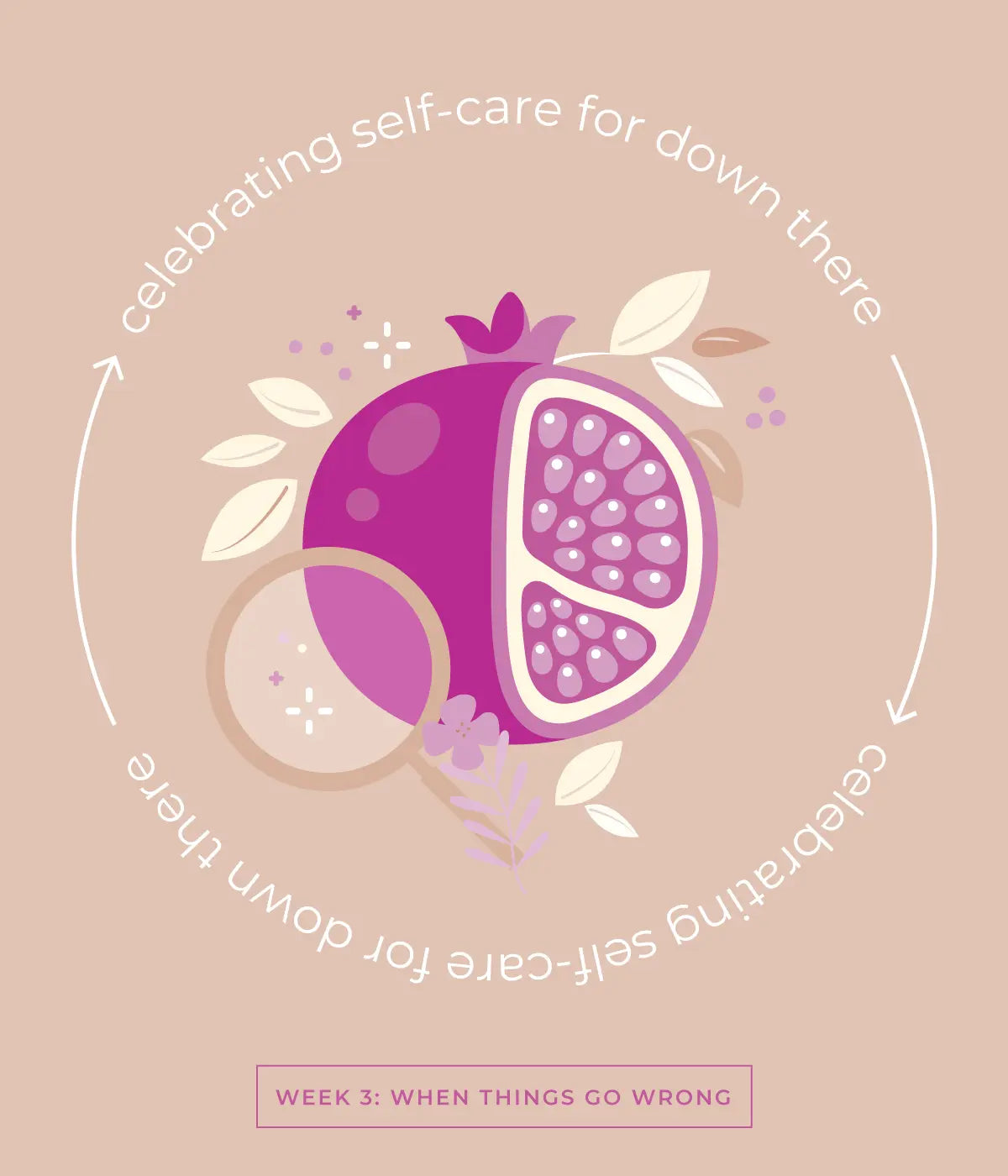When Things Go Wrong Down There . . . .

This week in our Self-Care for Down There series we discuss what can go wrong, and a few essential tips for self-care.
What is vaginal infection?
Infections that cause pain and produce a feeling of heat can affect the vulva and/or vagina. Vaginal infections occur when there is an imbalance, causing bacteria, funguses and other organisms to grow uncontrolled. Some of these organisms already live in the vagina and are kept at healthy levels by co-existing with other organisms. Infectious organisms can also be introduced into the vagina by improper hygiene or unsafe sex.
What is vulva irritation?
The skin of the vulva is very delicate, so vulval irritation is very common. Symptoms can include redness, swelling, itching, discomfort and/or burning pain. Sometimes there is a vaginal discharge or inflammation. The irritation can be caused by a range of factors such as sweating, wearing tight synthetic clothes, eczema or dermatitis, personal hygiene issues, allergies to products containing fragrance, dyes, chlorine, preservatives, as well as infections and skin conditions.

How can we care for the vulva?
We want to keep the vulva dry and free from irritants that can cause the vulva to become red, swollen and irritated. Because many infections are introduced into the vagina, this is especially important to provide a basis for good, vaginal care.
Here are a few helpful tips!
- Use warm water to wash the vulva. Dry thoroughly with a clean towel. The vagina cleanses itself naturally in the form of normal, vaginal discharge.
- Avoid using douches unless prescribed by your physician. These products can upset the natural balance of bacteria.
- Avoid these feminine hygiene products, which are full of nasty chemicals and can irritate the vulva: feminine spray and deodorants, scented oils, bubble baths, bath oils and talcum powder.
- Be sexually responsible.
- Wear only natural fibres down there! Avoid wearing nylon, acetate, or other synthetics if you have delicate skin or are prone to vulva irritation.
- Use chemical and fragrance free laundry detergents, avoid fabric softeners.
- Wash new underwear before wearing.
- Use soft, toxic free, toilet paper.
- Avoid wearing nylon pantyhose or panty girdles. They trap heat and moisture, providing an ideal breeding environment for bacteria. When pantyhose or leggings are required, chose cotton or nylons with a cotton panty.
- Stay on top of routine exams and recommended tests, like: pap tests, HPV tests, STD testing and regular check-ups.
While vulval irritation can usually be managed by making simple changes and by practicing good care, it is important to see your GP to have your condition correctly diagnosed and treated.

0 comments




